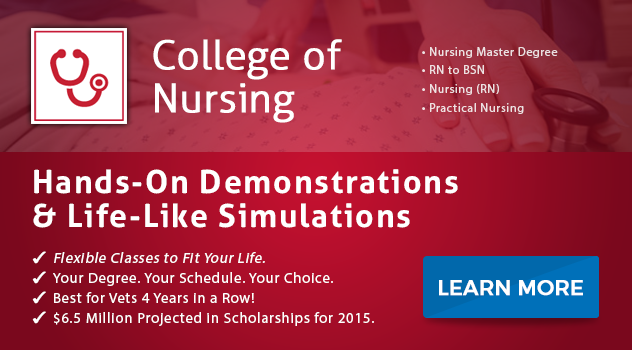Nurse Practitioner Requirements: How Can I Move from RN to MSN?
The first training programs for nurse practitioners began in 1965. For some years, prior physicians had begun entering specializations in increasing numbers and a shortage of primary care physicians occurred. All over the country, populations were going medically underserved.
During 1965, with the advent of Medicare and Medicaid, large numbers of people who had previously not had healthcare began to seek medical care; and because doctors could not meet the demand, nurses stepped up to the fore. Although there was some opposition to the extension of nurses' duties without a physician's direction in those first years, the practice is now well established.
Family Nurse Practitioners Widely Accepted
The nurse practitioner field has come a long way since those early days, and today, the FNP (family nurse practitioner) is found everywhere. Their numbers have grown, as has their autonomy, particularly in response to the ever-greater need for cost-effective and accessible care.
While titles and credentialing were rather confused in the early days, the National Council of State Boards of Nursing has defined what advanced-practice nursing is, and has established the master of science in nursing degree and licensure as a registered nurse as the minimum for certification. Licensure is recommended as the preferred standard to regulate the profession.
What Family Nurse Practitioners Do
Nurse practitioners may perform a variety of tasks, including prescribing medicines, treating illnesses, performing physical exams, and ordering diagnostic tests. An NP also maintains and reviews patient records that contain medical history, diagnoses, and patient symptoms; provides guidance and care regarding prescriptions; and designs patient treatment plans. NPs tend to focus on preventative medicine, wellness, and patient education.
Becoming a Family Nurse Practitioner
To become an FNP you must first become a nurse, or RN (registered nurse), which requires at least an associate degree in nursing, as well as passing a national exam and obtaining state licensure. After the RN, those who seek to become a type of Advanced Practice Registered Nurse (APRN) will need specialized education and clinical training so they can provide a higher level of care and perform tasks beyond those of an RN.
NPs may often focus on an area of the population, such as geriatrics, pediatrics, adult medicine, or mental health. Generally, those on track to become NPs complete a bachelor's degree in nursing and then a master's in nursing. The master's is the most common degree among nurse practitioners, but the doctoral degree is becoming more common. A bachelor's degree is considered a prerequisite for all advanced studies.
Some advanced nursing programs require the candidates to get a few years of experience. The theory is the nursing professional should have hands-on experience as well as book and classroom learning. However, some programs allow the students to get experience while they are studying for their degree.
Real-world RN experience is viewed as a tremendous asset to the future nurse practitioner. In addition, it can provide the student with an opportunity to try out various fields, and to determine which one suits the student as the best career path.
What Will Work be Like as a Family Nurse Practitioner?
FNPs who obtain their advanced degree may then practice independently, taking on a role similar to that of a family physician. States vary in how much autonomy a nurse practitioner licensing allows the NP to take on, but as the shortage of family care physicians and physicians practicing internal medicine continues, more states are allowing nurse practitioners to function independently, without the care of a physician.
What Do I Need to Become a Family Nurse Practitioner?
Beyond a formal education, the nurse practitioner should have a compassionate attitude, as there may be more interaction between patient and NP than perhaps occurs in the typical physician/patient relationship, and because NPs tend to address wellness issues rather than just treat symptoms. It's an ideal career path for health practitioners who may want to advance beyond traditional RN duties, but still maintain some of the close, hands-on activities of nursing while taking on greater responsibility.
As with most professions, the more education you receive as a nurse practitioner, the more opportunities you are likely to have to apply for positions of higher responsibility. In most cases, this should also result in the opportunity to earn a higher salary.
Making Your First Move
Are you interested in becoming a family practice nurse practitioner? If so, you may be ready to earn a Master of Science in Nursing with a focus in this very subject from ECPI University. Classes are taught at an accelerated rate. For more information on this exciting program, connect with a friendly admissions counselor today.
It could be the Best Decision You Ever Make!
DISCLAIMER – ECPI University makes no claim, warranty, or guarantee as to actual employability or earning potential to current, past or future students or graduates of any educational program we offer. The ECPI University website is published for informational purposes only. Every effort is made to ensure the accuracy of information contained on the ECPI.edu domain; however, no warranty of accuracy is made. No contractual rights, either expressed or implied, are created by its content.
For more information about ECPI University or any of our programs click here: http://www.ecpi.edu/ or http://ow.ly/Ca1ya.





